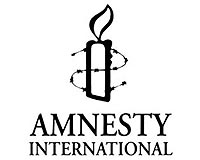| . |  |
. |
Riyadh, Saudi Arabia (UPI) Dec 6, 2010 Saudi Arabia's recent roundup of 149 al-Qaida suspects may have averted a series of planned attacks on government officials and military installations but also demonstrated how much of a danger the jihadists pose to the kingdom. The clandestine network consisted of at least 19 cells across the country, said Interior Ministry spokesman Gen. Mansour al Turki, who announced the arrests Nov. 26. The extent of that network underlines how the jihadists have been able to regroup following their defeat at the hands of Saudi security forces in 2007, ending a four-year campaign of terror across the kingdom. The Saudis have clearly developed a highly efficient intelligence and security system, which extends into neighboring Yemen, ancestral homeland of Osama bin Laden's family and to where the surviving Saudi jihadists fled in 2006-07. There the Saudi militants joined forces with their Yemeni comrades to form al-Qaida in the Arabian Peninsula in January 2009. AQAP has become one of al-Qaida's most active franchises and is clearly determined to revive operations inside Saudi Arabia. It was responsible for a failed effort to assassinate the Saudi royal who led the counter-terrorism campaign against them, Prince Mohammed, son of Interior Minister Prince Nayef bin Abdulaziz, Aug. 17, 2009. That was the first known attempt to kill a member of the House of al-Saud, which the jihadists have sworn to overthrow. It signaled that al-Qaida was back in business in the world's leading oil producer, developing new and innovative terrorist techniques and prepared to attack the United States. AQAP was linked to the November 2009 killings at Fort Hood, Texas, the failed Christmas Day 2009 attempt to blow up a U.S. airliner over Detroit, and the U.S.-bound parcel bombs intercepted aboard cargo aircraft in Britain and Dubai Oct. 29. Since 2007, the Saudis have periodically announced large-scale roundups of jihadist suspects. They claimed they apprehended around 200 in six cells in 2007. The following year another 700 were rounded up. In August 2009, 44 suspects were seized, with another 113 reported picked up March 24 this year. Among those held in that roundup was a woman identified as Haylah al-Qusair, the wife of a jihadist killed by Saudi security forces Dec. 29, 2004. She was a key AQAP financier, who reportedly transferred $650,000 to AQAP in Yemen before she was caught Feb. 21, suggesting the organization lost a key source of funds with her arrest. Al-Qusair, 45, is also closely associated with AQAP's deputy leader, Saeed al-Shihri, a former Guantanamo Bay prisoner who was returned to Saudi Arabia in 2007, then fled to Yemen to reorganize the jihadist campaign. In a June 3 audiotape, al-Shihri underlined her importance to al-Qaida by calling on supporters to kidnap members of the royal family to secure her release. Al-Shihri's wife, Wafa, has been a key figure in recruiting women for AQAP, a major shift in doctrine that underlines how the network is mutating and evolving. The National, an English-language daily published in Abu Dhabi, reported Sunday that some of the 149 suspects arrested over the last eight months had planned to mail gifts of poisoned perfume to Saudi security officials, clerics and media figures. It quoted a senior Saudi official as saying documents seized during the arrests showed the plot hadn't reached the operational stage but said it had originated with al-Qaida in Yemen. Senior officials, such as Prince Mohammed, the counter-insurgency chief, weren't targeted, the official observed, because they don't open their own mail. So the deadly gifts were to have been directed at lower-ranking officials in a bid to cause panic within the Saudi system. On Thursday, al-Shihri issued a communique calling on Saudi troops to abandon their "apostate masters" and join the jihad. "Direct your weapons toward Israel, which is only a few kilometers away from you," Al-Shihri declared. "The pilots among you should seek martyrdom over the skies of Palestine and those in the navy should point their weapons at the Jews there. "Guards of the government and royal family should emulate the example of Khalid Ahmed al-Islambouli," leader of the Egyptian Islamists who assassinated President Anwar Sadat Oct. 7, 1981, for making peace with Israel.
Share This Article With Planet Earth
Related Links The Long War - Doctrine and Application
 Amnesty demands action on Malaysian caning 'epidemic'
Amnesty demands action on Malaysian caning 'epidemic'Kuala Lumpur (AFP) Dec 6, 2010 Caning in Malaysia has "hit epidemic proportions" with thousands of people subjected every year to beatings which leave permanent physical and mental scars, Amnesty International said Monday. The London-based rights group called on the Malaysian government to immediately end the practice of judicial caning, which is meted out for immigration offences as well as more serious crimes like murde ... read more |
|
| The content herein, unless otherwise known to be public domain, are Copyright 1995-2010 - SpaceDaily. AFP and UPI Wire Stories are copyright Agence France-Presse and United Press International. ESA Portal Reports are copyright European Space Agency. All NASA sourced material is public domain. Additional copyrights may apply in whole or part to other bona fide parties. Advertising does not imply endorsement,agreement or approval of any opinions, statements or information provided by SpaceDaily on any Web page published or hosted by SpaceDaily. Privacy Statement |